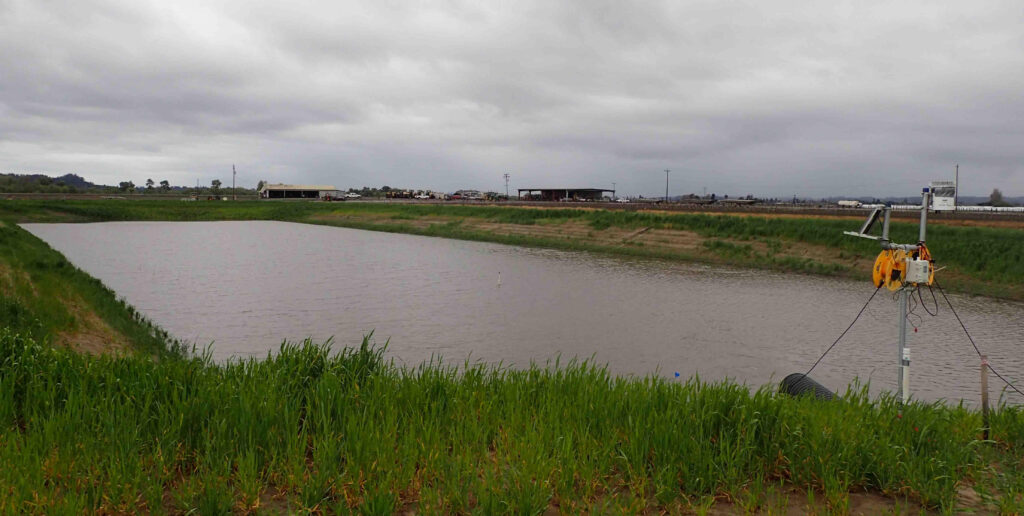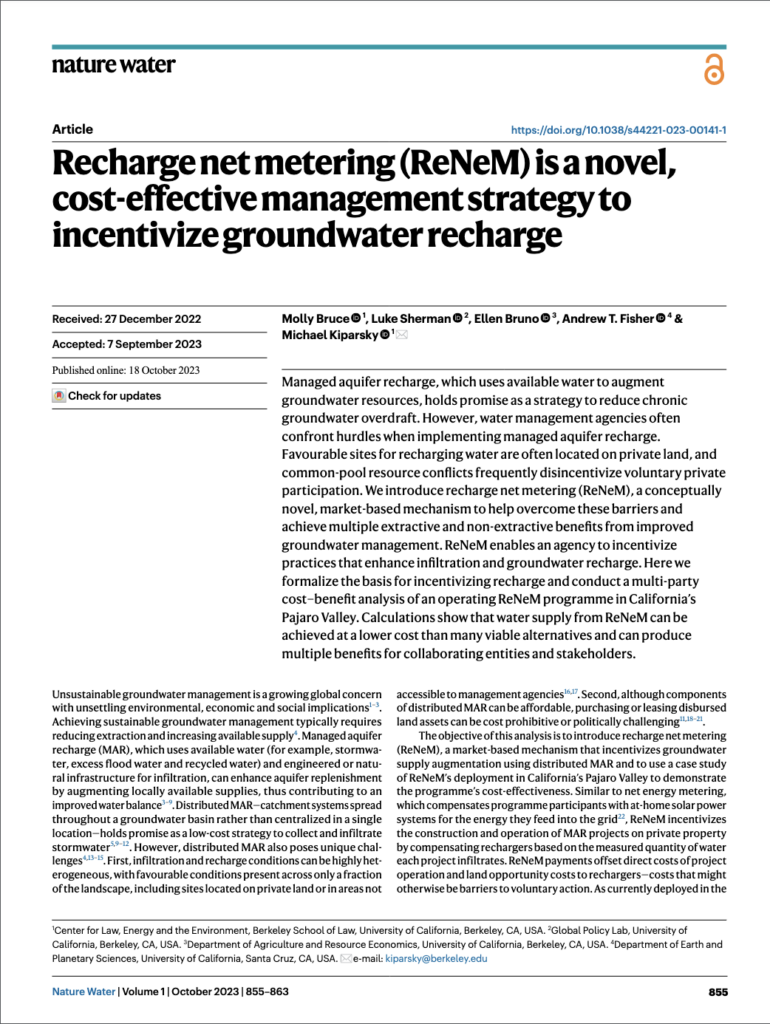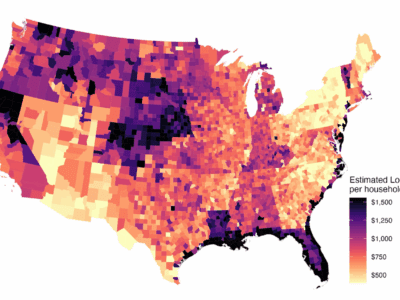Recharge net metering (ReNeM) provides win-win-win for groundwater agency, landowners, & sustainable groundwater management
Nature Water publication showcases the economics of a novel groundwater recharge incentive structure
By Molly Bruce, Luke Sherman, Ellen Bruno, Andrew T. Fisher, & Michael Kiparsky
An insidious issue has been growing along the Central Coast and throughout the state of California for decades: groundwater overdraft. In response to this growing threat and 2014 legislation designed to put an end to chronic overdraft, many basins have identified managed aquifer recharge (MAR) as an essential supply-side tool for managing water resources. MAR promotes infiltration using natural or engineered infrastructure and available water, thereby improving water balance.

Distributed MAR is an even newer concept, relying on catchment systems spread throughout a groundwater basin rather than centralized in a single location. However, areas most suitable for MAR––spaces with suitable geology to which water can be efficiently routed for infiltration––are often located on land that water management agencies cannot freely access. The individuals, businesses, or outside agencies that do own or manage these areas are not sufficiently incentivized to participate in MAR. 
Enter recharge net metering (ReNeM), a conceptually novel market-based mechanism similar to net energy metering that financially incentivizes groundwater supply augmentation using distributed MAR by subsidizing private parties who conduct recharge on their land. In this way, ReNeM addresses some of the political challenges and transaction costs that can hinder other forms of groundwater management.
Our new paper, published in Nature Water, showcases a case study of ReNeM deployed in California’s Pajaro Valley by developing a method to evaluate its economic performance based on cost-benefit analysis. Results show:
ReNeM can reduce groundwater overdraft at lower cost per acre foot than most other management actions.
Results showed that, at $570 per acre foot of water, ReNeM cost less than all other management options at the Pajaro Valley’s disposal. These include both surface water storage and other groundwater recharge efforts. Only narrow instances of increased recycled water deliveries and improvements in irrigation efficiency cost less.

All parties to the ReNeM program receive significant net benefits.
ReNeM produces significantly more benefits than the costs it imposes. Over 25 years at its current modest level of implementation, , ReNeM is projected to generate net benefits equivalent to ~$1.9 million. ~86% of that amount ($1.63 million) is projected to accrue to the basin as resource enhancement and ~14% ($270,000) paid to program participants who host projects on their land.
ReNeM is highly adaptable and capable of producing substantial net benefits under a range of circumstances.
ReNeM aligns the interests of agency and landowner participants in ways that other methods do not. Unlike groundwater banking, ReNeM has the potential to support environmental improvements and sustain groundwater supplies. Crucially, ReNeM may contribute to environmental and social benefits which, while not quantified in our analysis, can help deliver broader water management benefits that are typically difficult to provide such as regional stream base flow augmentation, water quality improvements, enhanced aquatic conditions, and community engagement in groundwater stewardship. Particularly when combined with groundwater protections or extraction limits, ReNeM’s adaptability gives agencies the capacity to balance different water uses, limit the withdrawal of recharged water, and support groundwater users in the basin.
Groundwater overdraft demands creative, cooperative solutions like ReNeM. Our research indicates that ReNeM may hold promise for many other basins across California and the west. Water managers can use our paper’s methodology to assess the program’s viability in their own management setting and roll out an incentive-based groundwater recharge program fit to local needs.
—
Reference: Bruce, M., Sherman, L., Bruno, E., Fisher, A.T., and Kiparsky, M. Recharge net metering (ReNeM) is a novel, cost-effective management strategy to incentivize groundwater recharge. Nature Water 1, 855–863 (2023).







Reader Comments